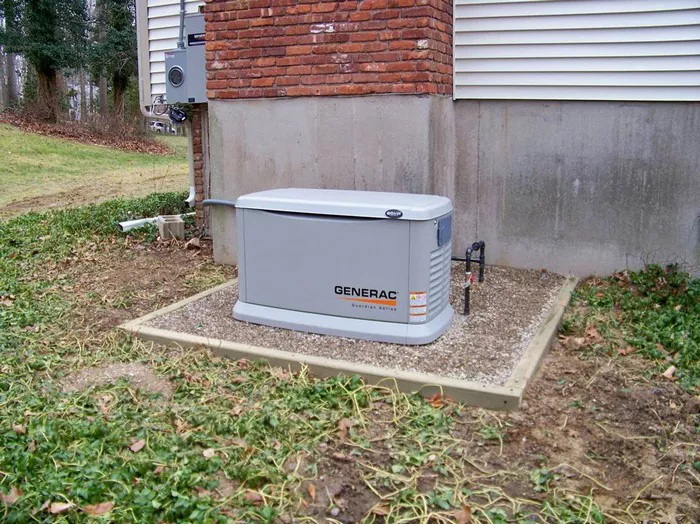Propane generators have become a reliable source of power for homeowners, especially during outages or in off-grid applications. A 24kW propane generator, in particular, is a popular choice for those requiring substantial energy output. However, understanding the fuel consumption of these units is crucial for planning and budgeting.
In this article, we will delve into how much propane a 24kW generator uses, the factors influencing fuel consumption, and how to optimize its efficiency.
Understanding Propane Generator Fuel Consumption
How Generators Consume Propane
Generators burn propane to power an internal combustion engine, which drives the alternator to produce electricity. The fuel consumption of a generator depends on several factors, including the load it supports, its efficiency, and the duration of operation.
Measurement Units for Propane
Propane consumption is typically measured in gallons per hour (GPH) or cubic feet per hour (CFH). Since propane is stored as a liquid and expands into a gas when used, understanding both measurements is important. One gallon of propane contains approximately 91,500 BTUs of energy.
Average Propane Consumption of a 24kW Generator
At Full Load
A 24kW generator operating at full capacity consumes about 3.5 to 4 gallons of propane per hour. This calculation assumes that the generator is running at its maximum power output of 24kW.
At Half Load
When running at half load (12kW), the propane consumption significantly decreases, averaging around 1.8 to 2 gallons per hour. This is because generators are more fuel-efficient at partial loads.
Idle or No Load
Even at idle or with minimal load, the generator uses propane to keep running. Expect consumption rates of about 0.5 to 0.7 gallons per hour in these cases.
Factors Affecting Propane Consumption
Load Percentage
The primary factor affecting propane usage is the load percentage. A generator working at higher loads will consume more fuel. Running essential appliances only during outages can reduce the load and propane usage.
Generator Efficiency
Modern generators are more efficient due to advanced technology, but older models may consume more propane for the same output. Checking the efficiency rating of your unit is important.
Altitude and Temperature
Propane expands and contracts with temperature changes. At higher altitudes or in colder climates, the generator might consume slightly more propane due to decreased engine performance.
Maintenance
A well-maintained generator consumes less fuel. Clogged filters, worn-out spark plugs, or poor engine tuning can lead to increased propane consumption.
Running Time
The longer you run the generator, the more propane it will consume. It’s advisable to plan usage during power outages to minimize waste.
Calculating Propane Needs for Extended Use
Step 1: Estimate Your Power Needs
Determine the average power consumption of your home or facility. A typical household uses 5-10kW during normal operations, meaning a 24kW generator has enough capacity to power essential appliances and more.
Step 2: Calculate Daily Propane Usage
Assume the generator runs at half load (2 GPH). Over a 24-hour period, it would consume:
2 gallons/hour × 24 hours = 48 gallons/day.
Step 3: Plan for Outage Duration
If you expect a week-long outage, multiply daily consumption by the number of days:
48 gallons/day × 7 days = 336 gallons.
Optimizing Propane Consumption
Load Management
Reducing the load can significantly lower propane usage. Use only essential appliances and stagger the operation of high-energy devices like HVAC systems or water heaters.
Regular Maintenance
Routine checks on filters, spark plugs, and oil levels ensure the generator runs efficiently and consumes less propane.
Install an Automatic Load Transfer Switch
This device helps balance the load on your generator by prioritizing critical appliances, preventing overloading, and optimizing fuel use.
Monitor Fuel Levels
Install a propane tank gauge to track fuel levels and prevent unexpected shortages.
Cost Analysis of Running a 24kW Propane Generator
Propane Cost Per Gallon
The cost of propane varies but averages around $3 to $4 per gallon in the United States.
Hourly Running Cost
At full load (4 GPH):
4 gallons/hour × $3/gallon = $12/hour.
At half load (2 GPH):
2 gallons/hour × $3/gallon = $6/hour.
Daily Running Cost
For 24-hour operation at half load:
$6/hour × 24 hours = $144/day.
Outage Costs
For a week-long outage, running at half load:
$144/day × 7 days = $1,008.
Pros and Cons of Propane Generators
Advantages
Clean Energy Source: Propane burns cleaner than gasoline or diesel, producing fewer emissions.
Long Shelf Life: Propane doesn’t degrade over time, making it a reliable fuel for long-term storage.
Versatility: Propane generators can power homes, RVs, and outdoor events with ease.
Disadvantages
Higher Operating Costs: Propane can be more expensive than gasoline or diesel per unit of energy.
Availability: Refilling propane tanks during extended outages may be challenging.
Fuel Storage Requirements: Propane tanks require proper ventilation and safety precautions.
Comparing Propane with Other Fuels
Gasoline
Gasoline generators typically have lower upfront costs.
However, gasoline has a shorter shelf life and is less efficient than propane.
Diesel
Diesel generators are more fuel-efficient and suitable for heavy-duty applications.
Diesel fuel is less clean-burning and can gel in cold temperatures.
Natural Gas
Natural gas generators offer an unlimited supply (if connected to a utility line).
However, they are less portable and may not be practical for rural or remote areas.
Conclusion
A 24kW propane generator is a powerful solution for providing backup power to your home or business. On average, it consumes 3.5-4 gallons of propane per hour at full load and 1.8-2 gallons per hour at half load. Factors like load percentage, efficiency, and maintenance can significantly impact fuel consumption.
By understanding your power needs, managing the generator’s load, and maintaining it properly, you can optimize its propane usage and reduce costs. While propane generators have some drawbacks, their clean-burning nature and reliability make them a valuable asset during outages or for off-grid living.
Related topics:

